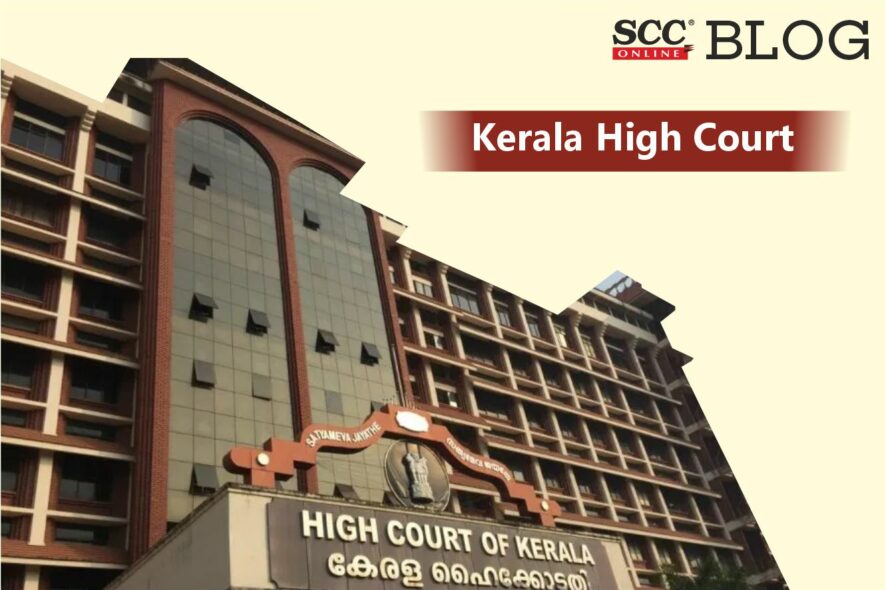Kerala High Court: In a case challenging the validity of Rule 12 of the Right to Information (Subordinate Courts and Tribunals) Rules, 2006, Murali Purushothaman, J., held that Rule 12 is not inconsistent with Article 19(1)(a) of the Constitution and the provisions of the Right to Information Act, 2005 (‘RTI Act').
The Court said that the RTI should not be resorted to obtain the copies of ‘A’ diary of civil and criminal postings of the cases since the same can be obtained by filing copy application in the court under the relevant Rules of Practice. The Court expressed that,
“Since the petitioner had been informed that the copies of ”A’ diary of civil and criminal postings of the cases’ can be obtained on filing copy applications, there is no denial or refusal of information and none of the fundamental rights of the petitioner have been infringed.”
The petitioner, a retired Class I officer and presently a practicing lawyer had filed an application under the Right to Information Act, 2005 seeking copies of ”A’ diary of civil and criminal postings of the cases for the period from 01-12-2021 to 14-04-2022.
The said application was rejected by the Public Information Officer (PIO) stating that the information sought can be obtained by submitting copy application and besides, information is already available on the Court website, the Court's notice board, and on the Kiosk of the District Court.
The first appeal preferred by the petitioner under Section 19 (2) of the RTI Act was dismissed on the ground that the information sought by the petitioner relates to judicial proceedings and the High Court as per Rule 12 of the Right to Information (Subordinate Courts and Tribunals) Rules, 2006 has directed all Subordinate Courts in the State that no information relating to any Judicial Proceedings shall be disclosed under the said Act.
Aggrieved thereby, the petitioner had filed the instant petition to assail both; the order of the PIO and the order dismissing the first appeal. Besides, the petitioner had sought to quash Rule 12 of the Rules, 2006 contending that the said provision is in violation of the fundamental right of the petitioner guaranteed under Article 19(1)(a) of the Constitution and the provisions of the RTI Act.
Pertinently, ‘A’ diary is a record of the sum and substance of the judicial work of each case taken up for consideration on a day, signed by the Presiding Officer.
Relying on Chief Information Commissioner v. High Court of Gujarat, (2020) 4 SCC 702, the Court observed that when the information can be obtained through the mechanism provided under the rules made by the High Court, the said mechanism should be preserved and followed and the provisions of the RTI Act shall not be resorted to. Since the copies of ”A’ diary of civil and criminal postings of the cases’ could be obtained by the petitioner on filing applications under the Rules of Practice, the Court opined that the provisions of the RTI Act should not be resorted to.
Whether Rule 12 inconsistent with RTI Act
The Criminal Rules of Practice, Kerala, 1982 and the Civil Rules of Practice, Kerala, 1971 were framed by the High Court before the enactment of the RTI Act and provide for the grant of copies of any proceedings or documents filed or in the custody of the Court. After the enactment of the RTI Act, to carry out the provisions of the said Act, the High Court has made the Rules, 2006 — in exercise of the powers conferred under sub-section (1) of Section 28 of the RTI Act read with Article 235 of the Constitution—incorporating provisions for providing information not covered by Criminal Rules of Practice and the Civil Rules of Practice.
The Court noted that since Criminal Rules of Practice and the Civil Rules of Practice provide for provisions for the grant of copies of any proceedings or documents filed or in the custody of the Court, the High Court, under Rule 12 of the Rules, 2006, has provided that no application for information or document relating to any judicial proceedings held by and under the control of the public authority, shall be entertained by the PIO. Hence, the Court held that the Rules, 2006 provide for the mode of furnishing information and are consistent with the provisions of the RTI Act.
Further, the Court observed that since the petitioner had been informed that the copies of ”A’ diary of civil and criminal postings of the cases’ can be obtained on filing copy applications, there is no denial or refusal of information and none of the fundamental rights of the petitioner have been infringed.
Consequently, the writ petition was dismissed. Additionally, considering that the PIO has referred to some non-existing provisions to reject the RTI application, as a word of caution, the Court remarked,
“The Public Information Officer has stated that it is not possible to give information in terms of Sections 2.8(V), 3(a), and 8B of the RTI Act. No such Sections could be traced in the RTI Act. While disposing of request for information, if any provisions of the law are to be referred to, the Public Information Officers shall endeavour to quote the correct provisions.”
[M.P. Chothy v. Registrar General, High Court of Kerala, WP(C) No. 23224 of 2022, decided on 20-07-2022]
Advocates who appeared in this case :
M.P. Chothy (in-person), Advocate, for the Petitioner.
*Kamini Sharma, Editorial Assistant has put this report together.







